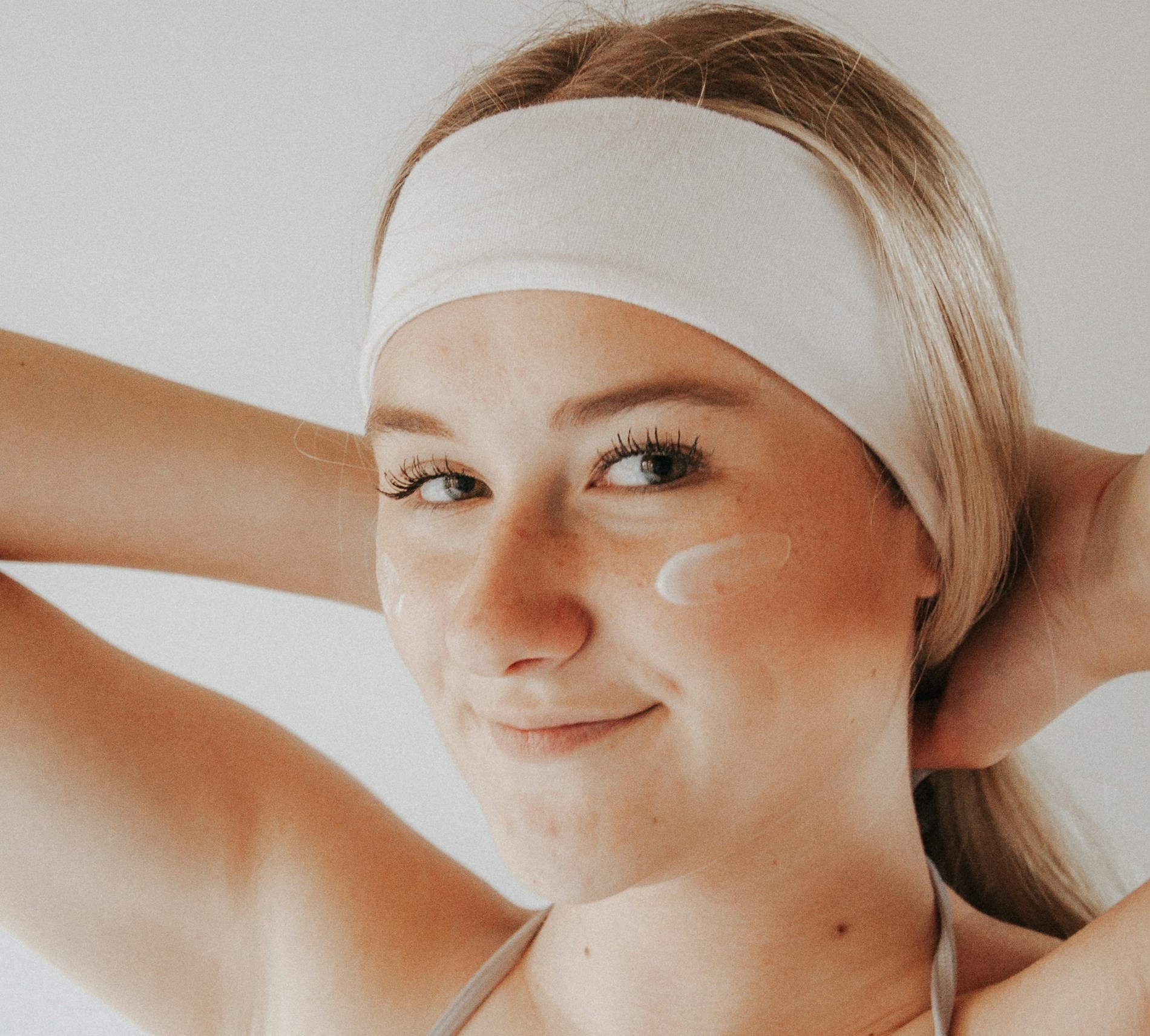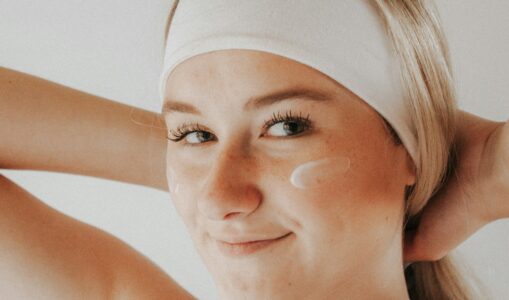Skincare is an essential part of personal health and wellness, influencing not just how we look, but how we feel about ourselves. Our skin, the body’s largest organ, serves as a protective barrier, safeguarding our internal systems from environmental hazards, while also playing a crucial role in our overall appearance. A good skincare routine can help maintain the health of this vital organ, enhance our appearance, and even boost our self-confidence.
In today’s world, the importance of skincare is more recognized than ever. With an abundance of products and advice available, it can be overwhelming to know where to start. However, the foundation of effective skincare is understanding the basics – knowing your skin type, recognizing the key components of a skincare regimen, and being aware of the factors that influence skin health.
Understanding Your Skin Type
The first step in creating an effective skincare routine is identifying your skin type. There are generally five main types: normal, oily, dry, combination, and sensitive.
- Normal Skin: This skin type is well-balanced, neither too oily nor too dry. It tends to have a smooth texture, with few imperfections and a healthy glow.
- Oily Skin: Characterized by an overproduction of sebum, oily skin often appears shiny and may be prone to acne and enlarged pores.
- Dry Skin: Lacking in natural oils, dry skin can feel tight, rough, and may be prone to flaking and fine lines.
- Combination Skin: This type displays characteristics of both oily and dry skin, often with an oily T-zone (forehead, nose, and chin) and dry cheeks.
- Sensitive Skin: Easily irritated, sensitive skin can react to various environmental factors or skincare products, often becoming red, itchy, or inflamed.

Understanding your skin type is crucial because it determines the kinds of products and ingredients that will be most beneficial for you.
The Fundamental Steps of a Skincare Routine
A basic skincare routine typically consists of three main steps: cleansing, toning, and moisturizing. Each step serves a unique purpose in maintaining skin health.
- Cleansing: This step removes dirt, oil, and impurities from the skin. Choosing a cleanser that suits your skin type is essential. For instance, those with oily skin might benefit from a foaming cleanser that helps control excess oil, while individuals with dry skin might prefer a hydrating cleanser that nourishes the skin.
- Toning: A toner helps to remove any residual impurities left after cleansing, restores the skin’s natural pH balance, and prepares it to absorb the subsequent skincare products more effectively. Toners can also target specific skin concerns, such as large pores or uneven skin tone.
- Moisturizing: This step is vital for all skin types. A good moisturizer helps to hydrate the skin, creating a barrier that locks in moisture and protects against environmental stressors. The type of moisturizer you choose should be based on your skin type and specific needs.
In addition to these fundamental steps, many people incorporate additional products into their routines to address specific concerns. These can include:
- Exfoliants: Used to remove dead skin cells and promote cell turnover, exfoliants can help improve skin texture and tone. However, they should be used sparingly to avoid irritation, especially for those with sensitive skin.
- Serums: Concentrated treatments that target specific issues such as wrinkles, hyperpigmentation, or dehydration. Serums contain active ingredients like hyaluronic acid, vitamin C, and retinol, which can deliver powerful results.
- Sunscreen: Perhaps the most critical step in any skincare routine, sunscreen protects the skin from the harmful effects of UV radiation. Daily use of a broad-spectrum SPF can prevent premature aging, sunburn, and reduce the risk of skin cancer.

Factors Influencing Skin Health
Several factors can affect the health and appearance of your skin, and understanding these can help you make better skincare choices.
- Diet and Hydration: What you eat and drink has a direct impact on your skin. A diet rich in antioxidants, vitamins, and minerals supports skin health, while adequate hydration helps maintain its elasticity and plumpness.
- Sleep: Quality sleep is essential for skin repair and regeneration. Lack of sleep can lead to dark circles, dull skin, and increased signs of aging.
- Stress: Chronic stress can exacerbate skin conditions like acne, eczema, and psoriasis. Finding ways to manage stress through activities such as yoga, meditation, or exercise can improve skin health.
- Environmental Factors: Pollution, climate, and UV exposure can all negatively affect the skin. Using protective skincare products and minimizing exposure to harmful elements can help maintain a healthy complexion.
- Hormones: Hormonal changes, whether due to puberty, pregnancy, or menopause, can impact skin condition. It’s important to adjust your skincare routine to accommodate these changes.
- Genetics: Your genetic makeup plays a significant role in determining your skin type and potential skin issues. Understanding your genetic predispositions can help you tailor your skincare regimen more effectively.

Skincare Myths and Misconceptions
With the wealth of information available, it’s easy to fall for myths and misconceptions about skincare. Here are a few common ones debunked:
- Myth: Expensive products are always better. Price does not necessarily equate to quality. Many affordable products contain effective ingredients that can deliver great results.
- Myth: You don’t need sunscreen on cloudy days. UV rays can penetrate clouds, so sunscreen is essential every day, regardless of the weather.
- Myth: Oily skin doesn’t need moisturizer. Even oily skin needs hydration. Skipping moisturizer can lead to increased oil production as the skin tries to compensate for the lack of moisture.
- Myth: Natural products are always better. Natural ingredients can be beneficial, but they can also cause allergies or irritation. It’s essential to choose products based on your skin’s specific needs and reactions.
- Myth: You should exfoliate daily. Over-exfoliation can damage the skin barrier and lead to irritation. Most skin types benefit from exfoliating 1-3 times per week.
Tailoring Your Skincare Routine
Creating a personalized skincare routine involves experimenting with different products and adjusting them based on how your skin responds. Here are some tips for tailoring your routine:
- Patch Test: Always patch test new products to check for any adverse reactions before applying them to your entire face.
- Introduce Products Gradually: Introduce one new product at a time and give it a few weeks to see how your skin responds before adding another.
- Listen to Your Skin: Pay attention to how your skin feels and looks. If a product causes irritation or doesn’t seem to work, don’t be afraid to discontinue its use.
- Adjust for Seasons: Your skin’s needs can change with the seasons. In winter, you might need more hydrating products, while in summer, you might focus on oil control and sun protection.
- Consult a Professional: If you have persistent skin issues or are unsure about which products to use, consider consulting a dermatologist. They can provide personalized advice based on your skin type and concerns.
Conclusion
Skincare is a journey of understanding and nurturing your skin to achieve its healthiest and most radiant state. By recognizing your skin type, establishing a consistent routine, and being mindful of the factors that influence skin health, you can make informed decisions that will benefit your skin in the long term. Remember, the goal of skincare is not just about looking good, but also about feeling confident and comfortable in your own skin. Start with the basics, be patient, and enjoy the process of discovering what works best for you.

